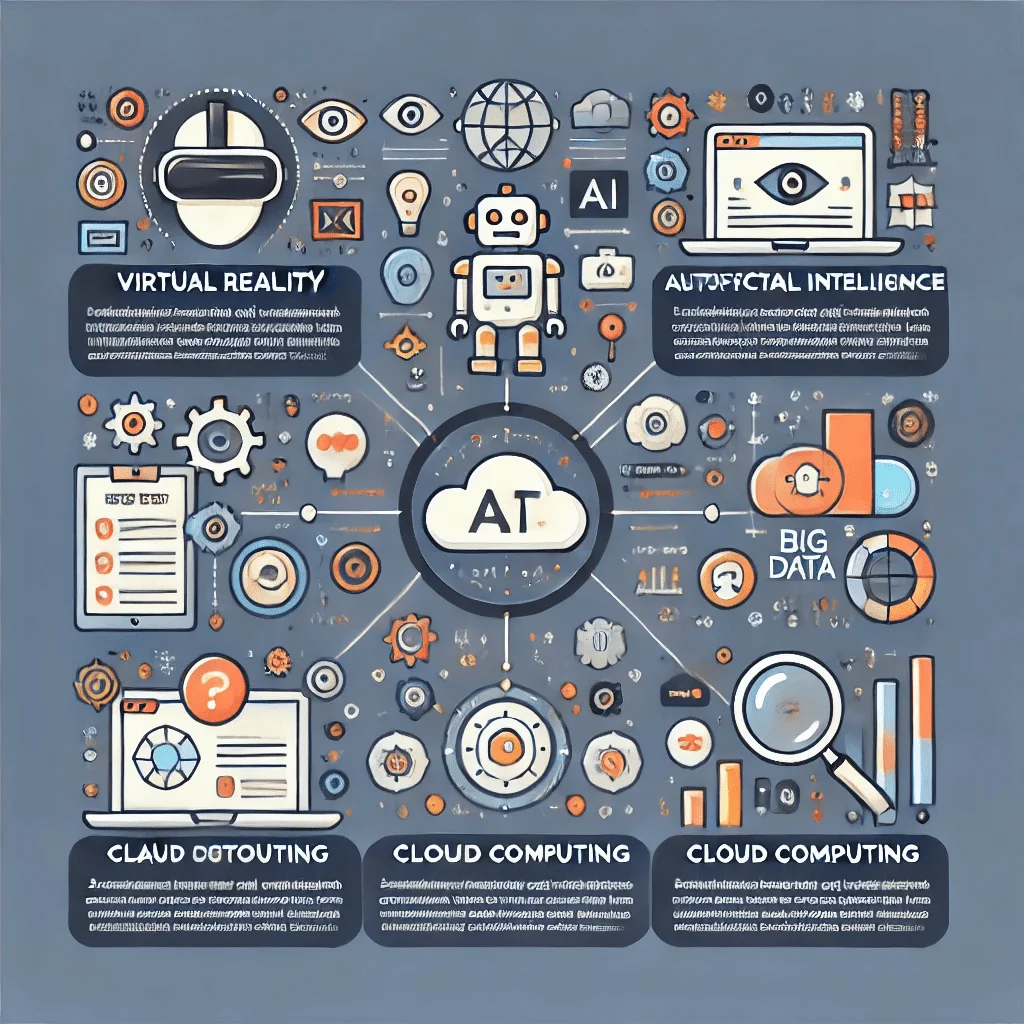digital technology grows, customer expectations have increased. People now expect better performance, faster services, and more engaging experiences from businesses.
New technologies like virtual reality (VR), artificial intelligence (AI), cloud computing, big data, live video, and intelligent chatbots are changing the way companies interact with customers.
Businesses that embrace these innovations can offer a more personalized and exciting customer experience, standing out from their competition.
In this article, we will explore 5 key technologies that are making waves and shaping the future of customer interactions.
1. Virtual Reality (VR): Immersive Customer Engagement
Virtual reality (VR) is a game-changing technology that allows customers to experience products and services in a completely immersive way. This technology engages multiple senses, helping brands to stand out by creating memorable and interactive experiences.
For example, Guinness used VR to launch new beers by setting up immersive tasting booths in Tesco stores. Customers were taken on a virtual journey where they could see, hear, and even “feel” the flavors of different beers. By using 360-degree video narrated by a master brewer, the experience stimulated all five senses, giving shoppers a unique way to interact with the brand.
Businesses can use VR to provide customers with product demos, virtual store tours, and enhanced experiences that would not be possible in the real world. This level of immersion captures attention and drives customer engagement, offering something no other technology can.
2. Artificial Intelligence (AI): Personalized Customer Interaction
Artificial intelligence (AI) is transforming how businesses interact with their customers by providing personalized and efficient services. Although AI has been around since the 1950s, it is only in recent years that businesses have started using it effectively.
AI helps improve customer service by personalizing interactions, answering customer inquiries quickly, and automating repetitive tasks. A great example of this is Hilton’s robot concierge, Connie.
Powered by IBM’s Watson, Connie is able to answer guests’ questions, offer hotel recommendations, and improve its responses with every interaction. This allows for a unique, personalized experience that gets better over time.
By incorporating AI, businesses can respond to customer needs faster, predict preferences, and create a more tailored experience, helping customers feel more valued and understood.
3. Chatbots: Efficient Customer Service
Chatbots are becoming an essential tool for businesses looking to improve customer service. These virtual assistants use advanced algorithms to answer common customer questions and handle routine tasks.
Unlike older systems, modern chatbots can learn from previous interactions, making them smarter and more efficient over time.
For instance, many e-commerce websites use chatbots to help customers with simple tasks like tracking orders, answering frequently asked questions, or recommending products.
These bots can operate 24/7, giving customers immediate responses and freeing up human agents for more complex inquiries.
Chatbots provide a quick and convenient solution for customers, improving the overall experience while reducing the workload for customer service teams.
4. Cloud Computing: Seamless Customer Experience
Cloud computing has revolutionized how businesses store, manage, and process data. By storing information in the cloud, businesses can provide faster and more reliable services to customers.
Cloud-based platforms allow customers to access their information from any device, making interactions smoother and more convenient.
For example, many companies now use cloud services to streamline customer data, ensuring that agents have access to all relevant information during support calls or chats. This leads to faster problem resolution and more personalized service.
Cloud computing also supports remote collaboration, allowing teams to work together no matter where they are, which ultimately benefits the customer by providing better service.
5. Big Data: Understanding Customer Needs
Big data refers to the massive amounts of information that businesses collect from customers. This data is valuable because it helps companies understand customer preferences, behaviors, and needs.
By analyzing big data, businesses can create more personalized marketing campaigns, improve customer service, and predict trends.
For instance, Netflix uses big data to recommend shows and movies based on a user’s viewing history. This personalization keeps customers engaged and coming back for more.
Similarly, e-commerce sites use data to recommend products based on a customer’s browsing and purchase history, creating a more tailored shopping experience.
By leveraging big data, businesses can make informed decisions that improve the customer experience, leading to higher satisfaction and loyalty.
Conclusion
As technology continues to evolve, businesses must stay on top of these advancements to meet rising customer expectations.
Virtual reality, artificial intelligence, chatbots, cloud computing, and big data are just a few of the innovations that are reshaping how companies connect with their customers.
Those that embrace these technologies will be able to provide richer, more personalized, and engaging experiences, setting themselves apart from competitors.
To remain competitive in today’s digital landscape, businesses must use these technologies to enhance their customer service, improve efficiency, and deliver the kind of experiences that keep customers coming back.




















